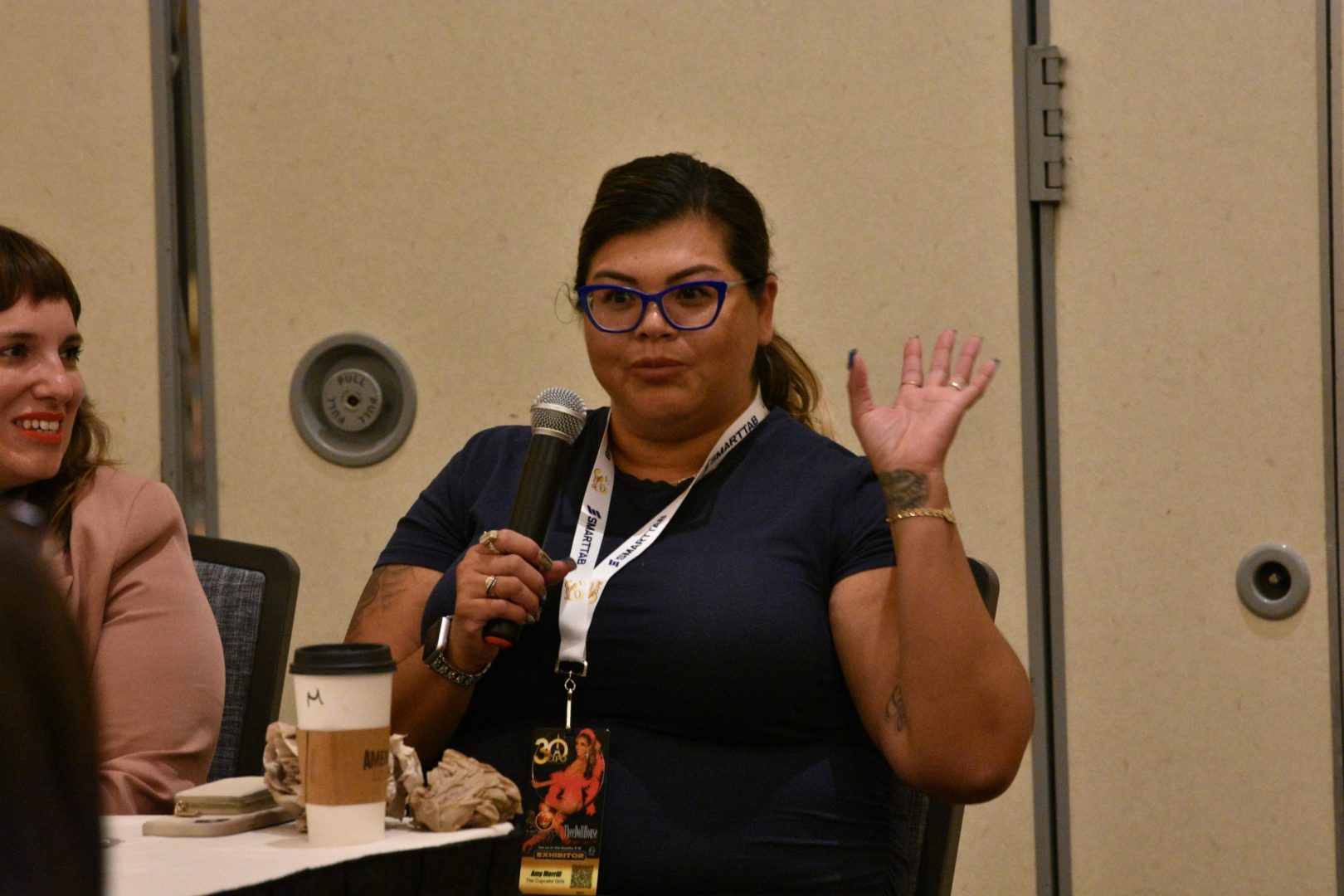ED Mental Health by Dr. Monique Martinez-Quiros
Dr. Monique of the Cupcake Girls, a confidential support group for adult entertainers, provides professional advice for mental health success, even on a bad night.
(NOTE: This story appears in the March 2024 issue of ED Magazine.)
Performers in the adult entertainment industry face a number of complex challenges that they wouldn’t in any other workplace. It’s not just the stress of performing night after night, adult entertainers also make a significant portion of their income from selling lap dances, which means that they experience a lot of rejection in attempting these one-on-one inquiries each night.
Whether she’s off her game or he’s having a bad night, it’s difficult not to take a rejection personally. Being “rejected” on a nightly basis can take its toll on an entertainer, especially when their livelihood depends on it. Every entertainer needs to come to work prepared with effective coping mechanisms in order to recover quickly and still leave the club with a substantial profit that night. And for an entertainer who’s planning on making a career of many nights, safeguarding their mental health and well-being is the only way to ensure longevity in the industry.
Dr. Monique is a doctorate-level, dually-licensed behavioral health professional with a specialty in integrated behavioral health. In addition to her own private practice, Key Rose, LLC, Dr. Monique is also a Pineapple Support Therapist, as well as The Cupcake Girls Vice Chair. Through both her private and volunteer work, Dr. Monique supports workers in the adult and sex industries in their physical and psychological wellbeing via traditional counseling and virtual reality.
Here are some coping strategies which Dr. Monique recommends to help ensure that adult entertainers are getting what they need in order to thrive in this industry.
“Cultivating resilience involves focusing on personal strengths and viewing setbacks as opportunities for growth.”
– Dr. Monique, Vice Chair of the Cupcake Girls
How to cope with a sales (dance) rejection
Coping with daily/nightly rejection in the adult entertainment industry can be challenging. Recognizing the unique challenges of daily and nightly rejection, performers can adopt a multifaceted approach to prioritize mental health and enhance self-confidence, which can include a combination of immediate strategies and ongoing practices:
1. Immediate coping strategies for handling rejection in the club:
a. Take a deep breath: Pausing to take deep breaths can help calm your nervous system and provide a moment of clarity.
b. Self-worth exercises: Reflect on your positive qualities and strengths, reminding yourself that rejection does not define your worth as a person.
c. Practice mindfulness: Ground yourself in the present moment by focusing on your senses – notice the sights, sounds and sensations around you.
d. Engage in positive distractions: Shift your focus to something enjoyable or engaging in the moment, such as dancing, chatting with friends, watching funny reels and/or TikToks or trying out a new activity.
e. Set realistic expectations: Recognize that rejection is a natural part of social interactions and does not necessarily reflect on your value or attractiveness.
2. Long-term strategies for avoiding personalization and internalization of rejection:
a. Recognize external factors: Acknowledge that rejection is due to factors beyond your control, such as the other person’s preferences, mood or circumstances.
b. Challenge negative thoughts: Challenge negative self-talk by questioning the validity of your beliefs and reframing them in a more balanced and realistic light; e.g. negative thought — “Tonight sucks, and I’m not going to make any money.”
1) Identify the negative thought — Not making money;
2) Question the evidence — What about tonight confirms this negative thought?;
3) Challenge this negative thought — How would you respond to another dancer if she came to you with this? What is a logical reason why it’s slow tonight?;
4) Reframe the thought — “Tonight has been slow, but there are opportunities to earn some money. How can I adapt?”
c. Focus on what you can control: Redirect your energy toward aspects of the situation that you can control, such as your attitude, behavior and response to rejection.

How, and why, to prioritize your mental health
To prioritize mental health, entertainers can separate personal worth from work by recognizing that rejection in the context of their work does not define personal value. One fundamental aspect of maintaining mental well-being is separating personal worth from professional rejection. Cultivating resilience involves focusing on personal strengths and viewing setbacks as opportunities for growth.
“Recognize that rejection is a natural part of social interactions and does not necessarily reflect on your value or attractiveness.”
– Dr. Monique, Vice Chair of the Cupcake Girls
Within the club setting, performers can employ specific strategies to enhance mental health and self-confidence. For instance, positive self-talk, where negative thoughts are replaced with affirmations, can be a powerful tool for maintaining a positive mindset. Examples of positive self-talk include:
“I am worthy of love and acceptance”;
“I create what I want and go and get it”;
“I am resilient and capable of bouncing back.”
Implementing positive self-talk can involve recognizing negative thoughts and replacing them with affirmations. Visualization techniques, practiced regularly, allow performers to envision successful interactions and positive outcomes. Examples of visualizing techniques include:
Imagining yourself in a future scenario where you feel confident and secure;
Visualizing yourself succeeding in a different social interaction or setting, reinforcing your belief in your abilities;
Creating mental images of positive affirmations or outcomes to boost your confidence and self-esteem.
Concentrating on personal strengths contributes to an enhanced sense of self-worth. Setting SMART (specific, measurable, achievable, relevant and time-bound) goals for each shift that align with long-term career aspirations establishes a habit of celebrating small successes, fostering a positive work environment. Additionally, creating a playlist of empowering or favorite music can significantly impact mood and motivation.
Outside the club, prioritizing self-care through adequate rest, proper nutrition and adhering to a consistent routine, including a structured work schedule, contributes to overall well-being. Building a robust support network of friends or colleagues who understand the industry’s challenges provides a crucial outlet for emotional support.
Implementing mindfulness practices, journaling and considering formal therapy or coaching are integral aspects of self-coaching. Free apps for mindfulness, are available and can easily be downloaded onto Android or Apple devices which can provide accessible tools for mental well-being. There are also specific counseling and coaching providers that work exclusively with adult workers, including Pineapple Support and The Cupcake Girls, who can either provide help directly, or refer you to someone in your area that may specialize in whatever you’re specifically in need of.
By implementing these strategies, performers can navigate the challenges of the profession while fostering personal growth, resilience and long-term well-being.
With Love, Light, Blessings and Securing the Bag,
Dr. Monique
For more information on Dr. Monique and the Cupcake Girls, visit keyrosellc.com or thecupcakegirls.org.





























